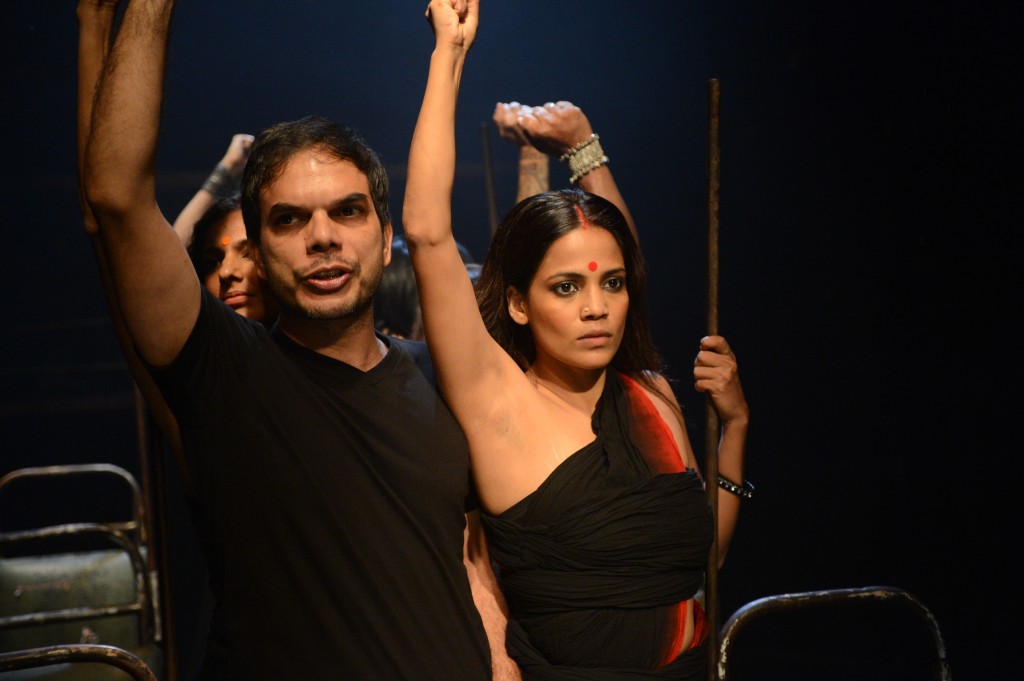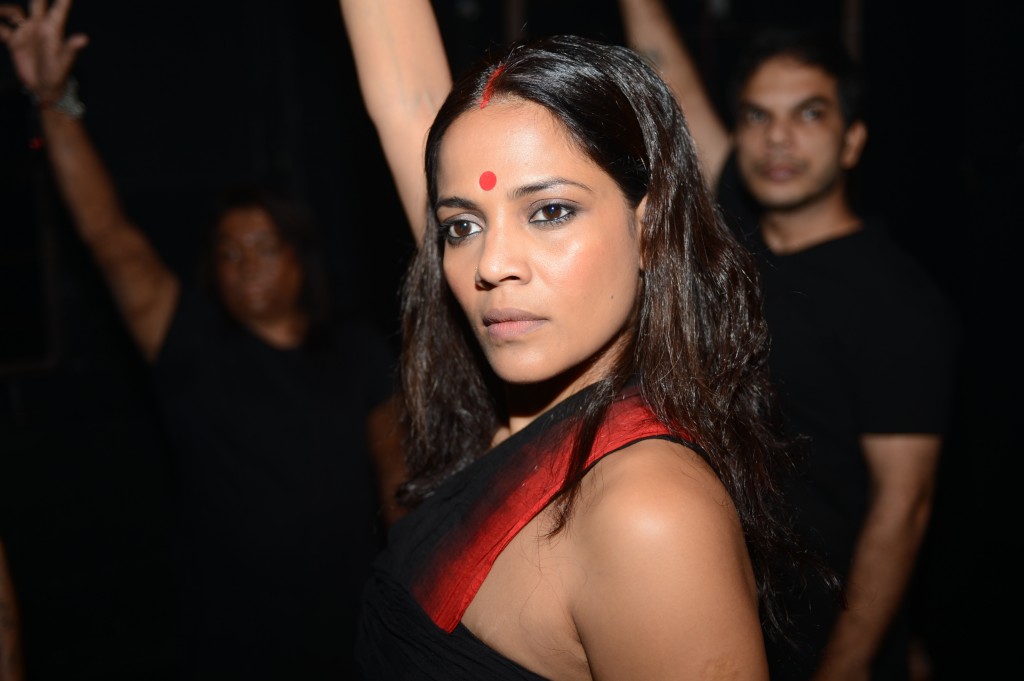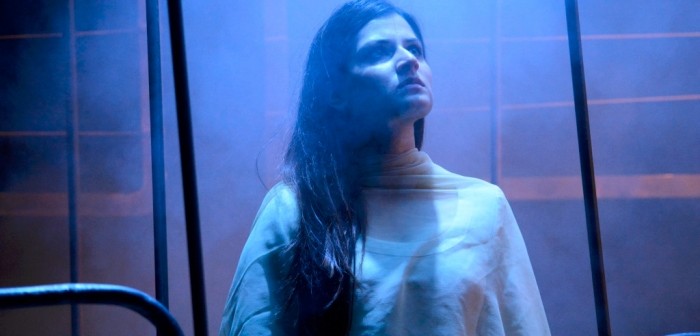
Credit: William Burdett-Coutts
At the York Theatre until November 14, 2015
604-251-1363/www.thecultch.com
Posted November 9, 2015
Nirbhaya is not a play you like; it’s a play you respect. Written and directed by Yaël Farber (Mies Julie) with a cast and creative team from India, Nirbhaya is the story of Jyoti Singh Pandey, the young university student who, on December 16, 2012, was gang-raped and viciously beaten by half a dozen young men on a Delhi bus. Because of the nature of the crime, her name could not be released at the time; the media – and, later, all the world – called her Nirbhaya, which means “Fearless”.
Nirbhaya and her boyfriend had just seen a movie and were on their way home when they boarded the bus that had been taken over by a group of drunken rowdies. Her boyfriend survived a ferocious beating but thirteen days later, Nirbhaya died in a New Delhi hospital telling him, “I can’t fight anymore.” She had asked that all the mirrors around her be broken because she could not bear to see the savagery of the assault on her face.
The fight against violence against women continues. Farber’s play, winner of the coveted Amnesty International Freedom of Expression Award following its premiere at the 2013 Edinburgh Festival, asks that we bear witness and that the code of silence be broken.

Credit: William Burdett-Coutts
While the spirit of Nirbhaya is pervasive throughout the play, the stories of four other women – victims of violence – are woven in. The program notes tell us, “Each testimony in this production belongs to the person performing it.” Almost unbearably brave, performers Priyanka Bose, Sneha Jawale, Rukhsar Kabir and Pamela Mala Sinha tell their personal stories of violence at the hands of fathers, husbands, relatives and strangers: eight-year-old Bose, sexually violated again and again by relatives and family friends; Kabir “often beaten” as a little girl by her father, then married off to a man who beat her; Jawale, married off at twenty to a stranger who later threw gasoline at her and lit a match; Sinha, emigrated to Montreal, enrolled in the National Theatre School and was brutally raped in her ground-floor apartment.
Nirbhaya is not a play you like; it’s a play that shocks you.
Produced by Assembly, Riverside Studios and Poorna Jagannathan Production (India, UK, Canada) and presented by The Cultch, the production, however, is – in its way – beautiful. Oroon Das’s set is minimal with bus windows suspended from wires and six or eight bus seats and poles. Paul Lim’s lighting design is smoky, shadowy and evocative. Farber keeps four women and the single male, Ankur Vikal, almost always in motion, so reminiscent of the crowded streets of Delhi. Japjit Kaur (Nirbhaya), completely in white, maintains an offside, ethereal presence except during the rape scene, which is graphic enough to make you want to turn away.
The fallout from the events of that evening back in 2002 has been significant: thousands of Indian men and women took to the streets, demanding change. Shock waves travelled around the world and once again women rallied to “Take back the night”. Here in Canada, our newly elected Liberal government has promised to re-open the file on the disappearance of First Nations women.
Nirbhaya raises questions: do shows like this bring about change? Are there women in the audience who will now feel empowered enough to speak up? Are there abusive men who will recognize themselves and get help? Can it affect policy regarding sexual violence against women here and around the world? That is the hope the play inspires.
Nirbhaya is not a play you like but it’s powerful, urgent and true. It’s also a remarkable piece of theatre. Be fearless. See it.

Credit: William Burdett-Coutts

